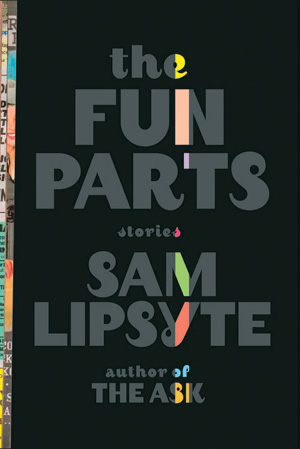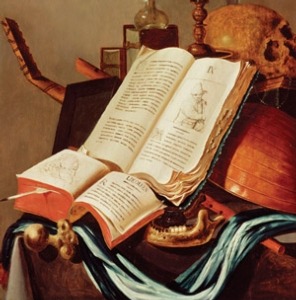
The Fun Parts by Sam Lipsyte (Granta)
Sam Lipsyte’s collection exemplifies a certain kind of American short story, seen in George Saunders, Karen Russell, in the whole McSweeney’s shebang. Location is blurred or hinted at; characters are strangely named (Tovah Gold, Randy Gautier) and behave improbably, for reasons that seem, if not obscure, then buried in their troubled pasts. That’s all well and good: you don’t come to a Lipsyte story for realism.
But it does become a problem when his stories are considered as a whole. What Lipsyte does best in these short stories is play with reality. Amongst the zaniness and implausibility, he can throw in a heart-wrenching reference to a lost baby sister (in “The Dungeon Master”, one of the best, where a near-psychotic senior tortures younger children in a fantasy game by referring to traumatic moments in their past) or to a need for children (as in “The Climber Room”, whose heroine, Tovah Gold, suddenly realises that for all her wonted feminism she still wants to pop a sprog).
Lipsyte’s ability to contrast what his characters imagine with what actually happens makes for the best moments of comedy and tension: “The Republic of Empathy” (another standout) sees a man falling to his death from a rooftop because he wanted to film himself fighting his friend.
It’s that tension which drives Lipsyte’s short stories, in some more successfully than others. “The Republic of Empathy” deserves fuller consideration. Told from several different perspectives, it follows the events around a man who wants a baby and a gay ex-cop turned painter who’s been asked to fake an old master; they watch the aforementioned battle on a rooftop, which turns out to link into their lives in various different ways, even perhaps leaking into their dreams. It’s a nice conceit: Lipsyte plays with us so successfully we are left gasping, disoriented and exhilarated: what is authenticity? What is reality? We don’t know, and that’s something that fiction should be asking all the time. This is also successfully deployed in “The Dungeon Master”, where a role-playing game is used to bring out real-life traumas. It’s taut, vivid and a beautiful take on the weirdness of adolescence, where nobody knows yet who they really are.
Lipsyte’s characters are beset by this failure to understand their own selves. This is reiterated in his obsession with inversion: an ex-Nazi lover who wants to atone by sleeping with a Jew; in one of the least successful stories, there is a doula (a sort of midwife) who is actually a man. People find that what they’ve desired all their lives is wrong; they rarely find fulfilment.
That is what is frustrating about Lipsyte’s short stories. He is entirely capable of reaching into the depths, but he prefers to skate along the surface, throwing breathless adjectives and clever asides at the reader. The collection’s refusal to engage fully with emotional truths means that, taken together, it seems flimsy. Read them one by one, delight in Lipsyte’s invention and charm, but prepare to be left as unsatisfied as one of his lonely, traumatised characters.

